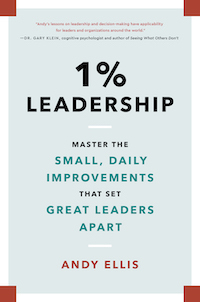Tanstaafl
2011-01-27
I was reading Rafal Los over at the HP Following the White Rabbit blog discussing whether anonymous web browsing is even possible:
This is a great point, although insufficiently generic, and limited to the gratis view of the web -- the allegedly free content. While you can consider the web browsing experience to be strictly transactional, it can more readily be contemplated as an instantiation of a world of relationships. For instance, you read a lot of news; but reading a single news article is just a transaction in the relationships between you and news providers.
A purchase from an online retailer? Let's consider a few relations:The merchant's relationship with: The payment card industry's interrelationships: payment gateways, acquiring banks, card brands, and card issuers all have entangled relationships.
The web is a world filled with fraud, and fraud lives in the gaps between these relationships (Often, relationships are only used one way: buyer gives credit card to merchant, who gives it to their gateway, who passes it into the banking system. If the buyer simply notified their bank of every transaction, fraud would be hard; the absence of that notification is a gap in the transaction). The more a merchant understands about their customer, the lower their cost can be.
Of course, this model is harder to perceive in the gratis environment, but is nonetheless present. First, let's remember:
Often, the product is simply your eyeballs; but your eyeballs might have more value the more the merchant knows about you. (Consider the low value of the eyeballs of your average fantasy football manager. If the merchant knows from past history that those eyeballs are also attached to a person in market for a new car, they can sell more valuable ad space.) And here, the more value the merchant can capture, the better services they can provide to you.
A real and fair concern is whether the systemic risk added by the merchant in aggregating information about end users is worth the added reward received by the merchant and the user. Consider the risk of a new startup in the gratis world of location-based services. This startup may create a large database of the locations of its users over time (consider the surveillance possibilities!), which, if breached, might expose the privacy and safety of those individuals. Yet because that cost is not borne by the startup, they may perceive it as a reasonable risk to take for even a small return.
Gratis services - and even for-pay services - are subsidized by the exploitable value of the data collected. Whether or not the business is fully monetizing that data, it's still a fair question to ask whether the businesses can thrive without that revenue source.
Can making anonymous surfing still sustain the "free web" concept? - Much of the content you surf today is free, meaning, you don't pay to go to the site and access it. Many of these sites offer feature-rich experiences, and lots of content, information and require lots of work and upkeep. It's no secret that these sites rely on advertising revenue at least partly (which relies on tracking you) to survive ...if this model goes away what happens to these types of sites? Does the idea of free Internet content go away? What would that model evolve to?
This is a great point, although insufficiently generic, and limited to the gratis view of the web -- the allegedly free content. While you can consider the web browsing experience to be strictly transactional, it can more readily be contemplated as an instantiation of a world of relationships. For instance, you read a lot of news; but reading a single news article is just a transaction in the relationships between you and news providers.
A purchase from an online retailer? Let's consider a few relations:
- The buyer's relationship with:
- the merchant
- their credit card / alternative payment system
- the receiver
- the payment gateway
- the manufacturer
- the shipping company
The web is a world filled with fraud, and fraud lives in the gaps between these relationships (Often, relationships are only used one way: buyer gives credit card to merchant, who gives it to their gateway, who passes it into the banking system. If the buyer simply notified their bank of every transaction, fraud would be hard; the absence of that notification is a gap in the transaction). The more a merchant understands about their customer, the lower their cost can be.
Of course, this model is harder to perceive in the gratis environment, but is nonetheless present. First, let's remember:
If you're not paying for something, you're not the customer; you're the product being sold.
Often, the product is simply your eyeballs; but your eyeballs might have more value the more the merchant knows about you. (Consider the low value of the eyeballs of your average fantasy football manager. If the merchant knows from past history that those eyeballs are also attached to a person in market for a new car, they can sell more valuable ad space.) And here, the more value the merchant can capture, the better services they can provide to you.
A real and fair concern is whether the systemic risk added by the merchant in aggregating information about end users is worth the added reward received by the merchant and the user. Consider the risk of a new startup in the gratis world of location-based services. This startup may create a large database of the locations of its users over time (consider the surveillance possibilities!), which, if breached, might expose the privacy and safety of those individuals. Yet because that cost is not borne by the startup, they may perceive it as a reasonable risk to take for even a small return.
Gratis services - and even for-pay services - are subsidized by the exploitable value of the data collected. Whether or not the business is fully monetizing that data, it's still a fair question to ask whether the businesses can thrive without that revenue source.

